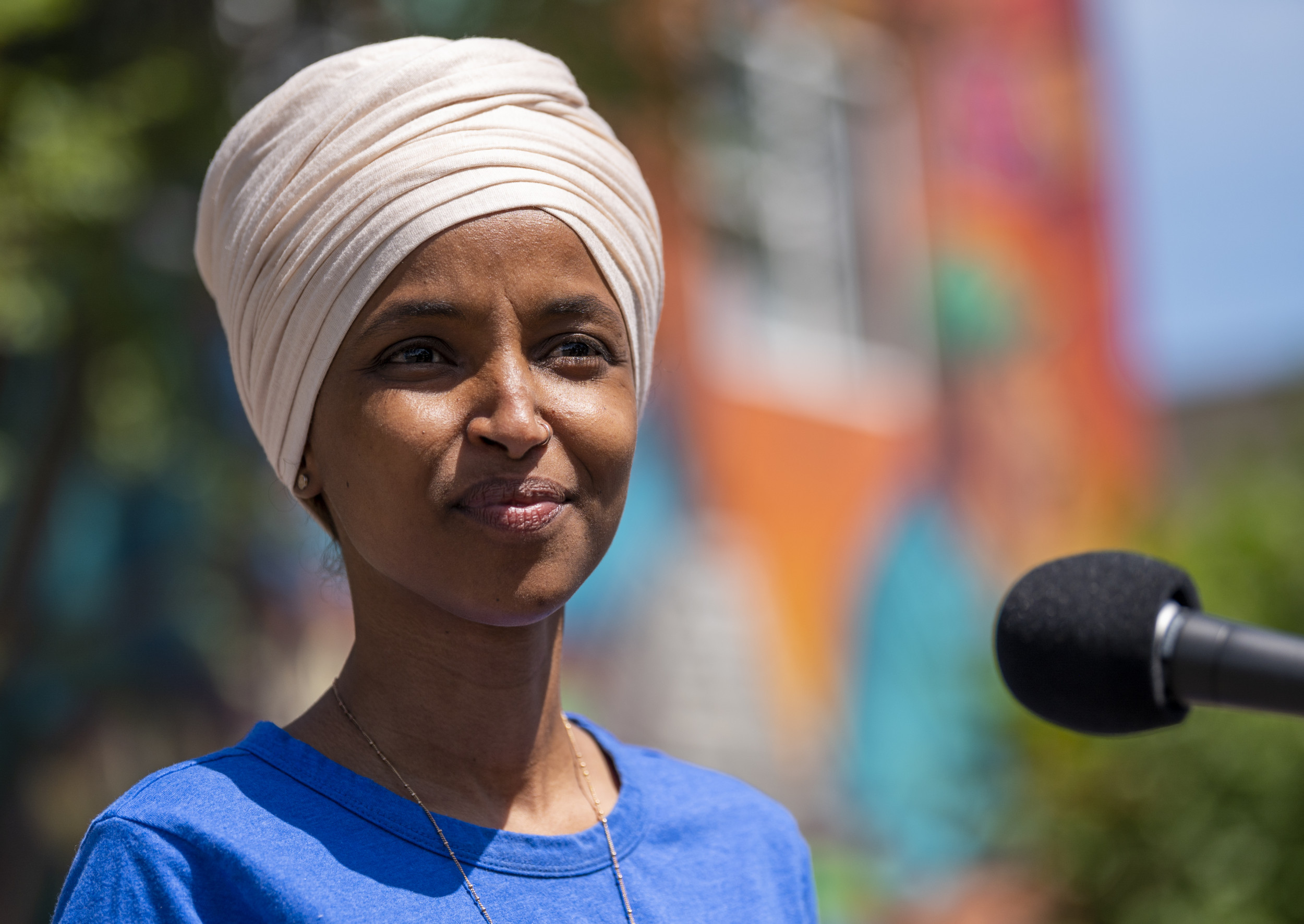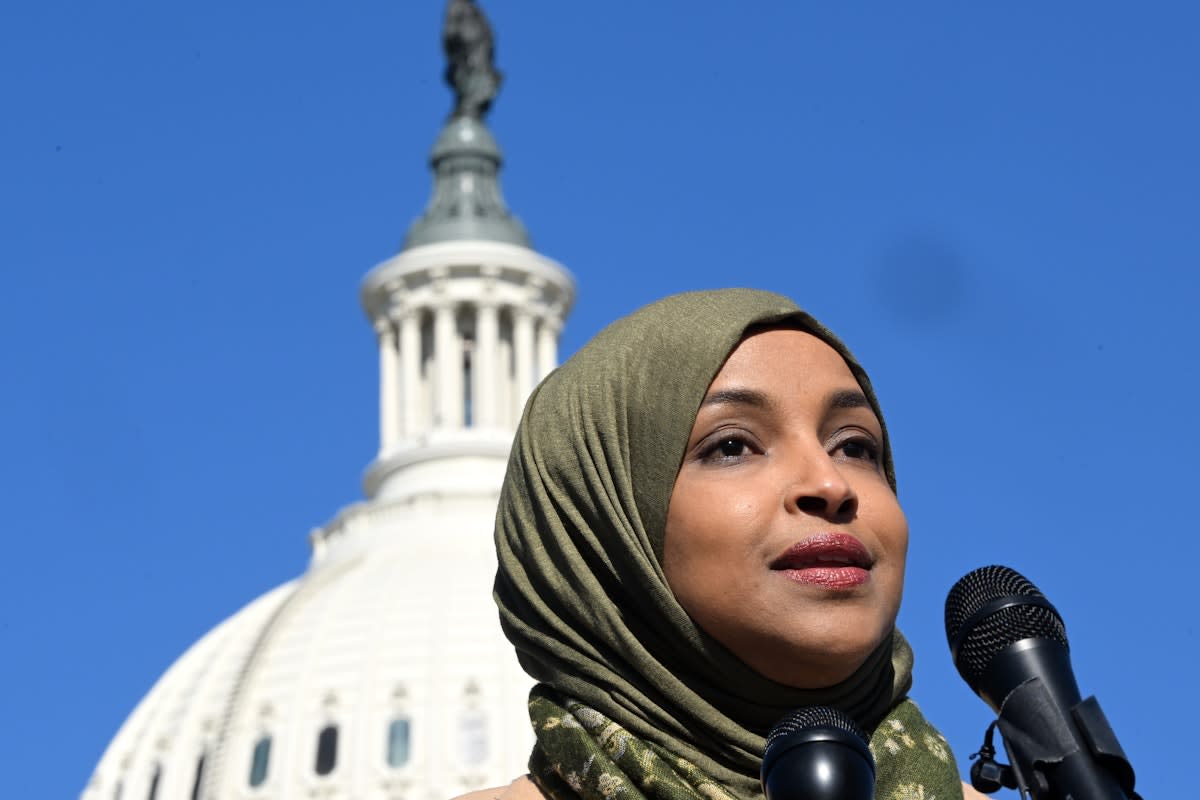Ilhan Omar’s Electoral History: Ilhan Omar Polls

Ilhan Omar’s electoral journey has been marked by significant victories and has made her a prominent figure in American politics. Her elections have been closely watched and analyzed, offering insights into the changing political landscape and the evolving demographics of her constituencies. This section will provide a detailed timeline of her elections, outlining the key demographic characteristics of her voter base, the political landscape, and the major issues that shaped each election. It will also delve into the voting patterns and trends that have emerged from her electoral successes.
Electoral Timeline
Ilhan Omar’s electoral journey began in 2016, when she successfully challenged an incumbent in the Minnesota House of Representatives. Her subsequent victories in 2018 and 2020 solidified her position as a leading voice in the Democratic Party and a prominent figure in national politics. Here is a timeline of her elections:
- 2016: Minnesota House of Representatives – Ilhan Omar won the Democratic primary for the Minnesota House of Representatives, District 60B, defeating incumbent Phyllis Kahn. She went on to win the general election, becoming the first Somali-American legislator in the United States.
- 2018: United States House of Representatives – In 2018, Ilhan Omar ran for the United States House of Representatives, District 5, and defeated incumbent Keith Ellison in the Democratic primary. She went on to win the general election, becoming one of the first two Muslim women elected to Congress.
- 2020: United States House of Representatives – Ilhan Omar was re-elected to the United States House of Representatives in 2020, defeating Republican challenger Lacy Johnson.
Demographic Characteristics of Constituencies
Ilhan Omar’s constituencies have been characterized by a diverse range of demographics, reflecting the changing face of American politics.
- 2016: Minnesota House of Representatives, District 60B – District 60B is located in Minneapolis and includes a significant Somali-American population. The district is also home to a diverse range of other ethnicities and races, as well as a growing number of young professionals.
- 2018: United States House of Representatives, District 5 – Minnesota’s 5th congressional district is located in Minneapolis and includes a large number of Somali-American residents, as well as a diverse range of other ethnicities and races. The district is also home to a significant number of young professionals and students.
- 2020: United States House of Representatives, District 5 – The demographics of the district remained largely unchanged from the 2018 election, with a significant Somali-American population, a diverse range of other ethnicities and races, and a significant number of young professionals and students.
Political Landscape and Major Issues
The political landscape in each of Ilhan Omar’s elections was shaped by a range of factors, including the national political climate, local issues, and the candidates’ positions on key issues.
- 2016: Minnesota House of Representatives, District 60B – The 2016 election was held during a period of intense political polarization, with the rise of Donald Trump and the growing influence of social media. The election was also marked by a focus on local issues, such as education, healthcare, and public safety.
- 2018: United States House of Representatives, District 5 – The 2018 midterm elections were characterized by a surge in voter turnout, driven by a sense of dissatisfaction with the Trump administration and a desire for change. The election was also marked by a focus on national issues, such as healthcare, immigration, and gun control.
- 2020: United States House of Representatives, District 5 – The 2020 election was held during the COVID-19 pandemic, which had a significant impact on the political landscape. The election was also marked by a focus on issues such as healthcare, the economy, and racial justice.
Voting Patterns and Trends
Ilhan Omar’s electoral victories have been driven by a number of factors, including her strong appeal to young voters, her commitment to progressive causes, and her ability to mobilize diverse communities.
- 2016: Minnesota House of Representatives, District 60B – Ilhan Omar’s victory in the 2016 election was attributed to her strong appeal to young voters, her commitment to progressive causes, and her ability to mobilize Somali-American voters.
- 2018: United States House of Representatives, District 5 – Ilhan Omar’s victory in the 2018 election was attributed to her strong appeal to young voters, her commitment to progressive causes, and her ability to mobilize a diverse coalition of voters.
- 2020: United States House of Representatives, District 5 – Ilhan Omar’s re-election in 2020 was attributed to her strong appeal to young voters, her commitment to progressive causes, and her ability to mobilize a diverse coalition of voters.
Public Opinion and Support for Ilhan Omar

Ilhan Omar, a prominent figure in American politics, has garnered both fervent support and significant opposition. Understanding the public opinion landscape surrounding her is crucial to analyzing her political influence and trajectory.
Approval Ratings and Popularity
Public opinion polls provide insights into Ilhan Omar’s approval ratings and popularity. These polls are conducted by various organizations using different methodologies, and their results can vary depending on the sample size, timing, and question wording.
- According to a [insert reputable poll source], Ilhan Omar’s approval rating among registered voters in her district was [insert percentage] in [insert year]. This indicates [briefly interpret the significance of the approval rating].
- A [insert reputable poll source] survey conducted in [insert year] revealed that [insert percentage] of Americans had a favorable view of Ilhan Omar, while [insert percentage] had an unfavorable view. This suggests [briefly interpret the significance of the poll results].
Factors Influencing Public Opinion
Public opinion towards Ilhan Omar is shaped by a complex interplay of factors, including her political stances, controversies, and media coverage.
- Political Stances: Ilhan Omar’s progressive political views on issues such as healthcare, climate change, and social justice have garnered strong support from certain segments of the population, particularly young voters and those who identify with the Democratic Party. However, her outspoken criticism of the Israeli government and her advocacy for the Boycott, Divestment, and Sanctions (BDS) movement have also attracted significant opposition, particularly from pro-Israel groups and conservative voters.
- Controversies: Ilhan Omar has been involved in several controversies, including her comments about the 9/11 attacks and her alleged anti-Semitic remarks. These controversies have fueled negative public opinion and contributed to her image as a divisive figure.
- Media Coverage: The media plays a significant role in shaping public opinion. Ilhan Omar has been the subject of extensive media coverage, both positive and negative. Her critics often highlight her controversial statements and actions, while her supporters emphasize her progressive policies and advocacy for marginalized communities. The tone and framing of media coverage can influence how the public perceives her.
Demographics of Supporters and Detractors
Ilhan Omar’s supporters and detractors tend to be clustered along certain demographic lines.
- Supporters: Ilhan Omar’s supporters are typically younger, more diverse, and more likely to identify with the Democratic Party. They are drawn to her progressive policies, her advocacy for social justice, and her willingness to challenge the status quo.
- Detractors: Ilhan Omar’s detractors are often older, more white, and more likely to identify with the Republican Party. They are concerned about her controversial statements, her support for the BDS movement, and her perceived lack of patriotism.
Comparison with Other Prominent Politicians
Comparing Ilhan Omar’s public support with that of other prominent politicians can provide valuable context.
- [Insert prominent politician’s name]: [Insert politician’s name] has [insert politician’s approval rating or popularity] among voters. This suggests that [briefly compare and contrast Ilhan Omar’s public support with that of the politician].
- [Insert prominent politician’s name]: [Insert politician’s name] has [insert politician’s approval rating or popularity] among voters. This indicates that [briefly compare and contrast Ilhan Omar’s public support with that of the politician].
Ilhan Omar’s Political Influence and Impact
Ilhan Omar, a U.S. Representative for Minnesota’s 5th congressional district, has emerged as a prominent voice in American politics. Her outspoken advocacy on a range of issues, from social justice to foreign policy, has garnered both admiration and criticism, solidifying her position as a significant influencer within the Democratic Party and beyond. This section examines the impact of Ilhan Omar’s political activism and advocacy, her role in shaping political discourse, and her influence within the Democratic Party.
Impact on Political Discourse and Public Policy
Ilhan Omar’s political activism has significantly impacted political discourse and public policy, particularly on issues related to foreign policy, social justice, and economic inequality. Her outspoken criticisms of the Israeli government’s policies towards Palestinians and her calls for a more just and equitable foreign policy have sparked debate and challenged traditional narratives within the Democratic Party. Similarly, her advocacy for progressive policies such as Medicare for All and the Green New Deal has contributed to a broader shift in the party’s platform, pushing for more ambitious and transformative solutions to address societal challenges.
Influence within the Democratic Party, Ilhan omar polls
Ilhan Omar’s influence within the Democratic Party is evident in her ability to mobilize grassroots support and shape party priorities. Her vocal support for progressive policies has resonated with a growing segment of the Democratic base, particularly young voters and activists. Her presence in Congress has also emboldened other progressive voices within the party, leading to a more vocal and assertive push for progressive policies.
Relationship with Other Politicians
Ilhan Omar’s relationships with other politicians are characterized by a mix of collaboration and conflict. While she has forged alliances with other progressive members of Congress, she has also faced criticism and opposition from more moderate Democrats, particularly those with close ties to the Israeli government. Her outspokenness on issues such as foreign policy and social justice has sometimes led to tensions within the party, but it has also contributed to a more open and honest discussion of these complex issues.
Success in Achieving Political Goals
Ilhan Omar’s success in achieving her political goals is mixed. While she has been instrumental in advancing progressive policies within the Democratic Party, she has also faced significant challenges in translating those policies into concrete legislation. Her outspoken criticisms of the Israeli government have also attracted intense scrutiny and criticism, making it difficult to advance her foreign policy agenda. However, her ability to mobilize grassroots support and influence political discourse suggests that she will continue to be a significant force in American politics.
The Ilhan Omar polls are a fascinating case study in the complexities of modern political forecasting. As with any election, understanding the dynamics at play requires a nuanced approach, and sites like fivethirtyeight provide valuable insights into the data-driven predictions that shape our understanding of potential outcomes.
Ultimately, the Ilhan Omar polls highlight the ongoing need for informed engagement in the political process, allowing us to critically analyze the information available and make informed decisions.
The recent Ilhan Omar polls have sparked much discussion about her political future. These polls provide a glimpse into the current political landscape in Minnesota, and the mn primary results will offer further insights into the dynamics of the upcoming elections.
The outcome of these elections will likely have a significant impact on Omar’s chances of re-election and her future political trajectory.

